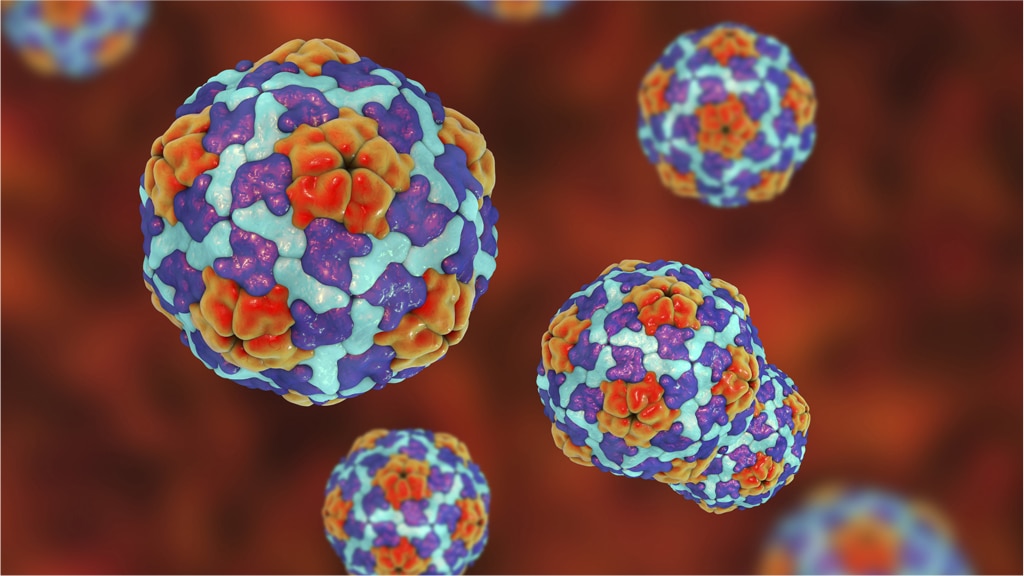Get your no-cost hepatitis B vaccine today
The Centers for Disease Control and Prevention (CDC) recommend that all unvaccinated adults ages 19 to 59 should get the hepatitis B vaccine. Age and other restrictions apply.* It’s no cost with most insurance. Plus, get a $5 off $20 coupon* for the next time you shop at CVS®.

Important information about hepatitis B
Have you already been vaccinated for hepatitis B? Today, babies receive a hepatitis B vaccination on their first day of life, but if you were born before 1991, you may not have received a vaccination. If you haven’t, hepatitis B vaccinations are available for adults.
What you should know about hepatitis B
Hepatitis B affects the liver
Hepatitis B is a serious, potentially fatal liver disease, but a vaccine can prevent it in most people. You can become infected by directly touching blood and body fluids from others who have the virus.

Help prevent infection
The vaccine can help protect against infection from the hepatitis B virus, which can be transmitted through activities that involve skin puncture or contact with blood or body fluids of an infected person. Many people don’t know they are infected with the virus because they don’t look or feel sick; however, they can still spread the virus to others.

Check your eligibility
- Unvaccinated children under age 19
- All patients ages 19 to 59 who have not previously completed vaccination
- Adults 60 and older with known risk factors
- Adults 60 and older without known risk factors but seek protection
This is not an all-inclusive list of who should be vaccinated. This material is for informational purposes only and is not medical advice.

We can help make vaccines easier

When it’s time for vaccines, it’s time for CVS™
Find 15+ vaccines, like flu, COVID-19, shingles, RSV*, pneumonia (pneumococcal), HPV and more.
Get rewarded for vaccinations
Join ExtraCare® for free and opt in to get $2 in ExtraBucks Rewards* for every vaccination.
More ways healthier happens together® with CVS
FAQs
Hepatitis B is a liver infection generated by the hepatitis B virus (HBV). The virus is passed from person to person through blood, semen or other body fluids — though it is not spread by coughing, sneezing or kissing. Mothers can also pass the virus to their baby at birth. According to the Centers for Disease Control and Prevention (CDC), not all people newly infected with HBV have symptoms, but for those that do, symptoms can include fatigue, poor appetite, stomach pain, nausea and jaundice.
Yes, hepatitis B is preventable. Getting vaccinated is the best way to avoid the infection. The vaccine for hepatitis B has proven to be both effective and safe. Make sure you’re protected by getting all of the required vaccine doses in a series; most individuals need a two- or three-dose series. However, certain individuals may need four doses depending on age, vaccine type and underlying medical conditions.
Hepatitis B is spread when body fluids, such as blood and semen, from someone with the hepatitis B virus enter the body of someone who is not infected — though it is not spread by coughing, sneezing or kissing.
Hepatitis B can be spread by:
- Being born to a mother who has hepatitis B
- Having sex with someone infected by hepatitis B
- Sharing needles, syringes or drug preparation equipment used by someone with hepatitis B
- Using personal hygiene and health products that have been contaminated with hepatitis B, such as a toothbrush, razor or glucose monitor
- Coming into contact with an HBV-infected person’s blood or open sores
Yes, the hepatitis B vaccine is proven to be safe. It’s important to know that you cannot get hepatitis B from the vaccine, since it does not contain any live virus. As with any other medicine, there is a chance that a serious problem could occur, but that risk is very small. The most common side effect is soreness at the injection site. The safety of vaccines is continually monitored by the Centers for Disease Control and Prevention.
According to the Centers for Disease Control and Prevention, those who should not get the vaccine* include anyone who has previously experienced a serious allergic reaction from receiving the hepatitis B vaccine, any part of the vaccine or yeast. Yeast is not an ingredient found within the vaccine itself. However, residual yeast-derived proteins can be present in the final product.
Per the Centers for Disease Control and Prevention, many people who get the hepatitis B vaccine have no side effects at all. The most common side effects are usually mild and last one to two days. Common side effects include headache; fever; and soreness, redness or swelling in the arm where the shot was given.
Anyone can become infected with HBV, and those eligible are encouraged to receive the vaccine. Additionally, there are people who may be at a greater risk of getting infected with HBV.
- Babies born to infected mothers
- People who inject drugs
- Anyone who uses needles, syringes or drug equipment shared by others
- Men who have male sexual partners
- Dialysis patients
- People who share a home with someone infected
- People whose sex partners have HBV
- People who have hepatitis C
- Travelers to countries with high rates of hepatitis B infection
- People who have sexually transmitted diseases
- People who have certain liver enzymes that are elevated
- People who have been incarcerated
- People who are exposed to blood while at work
See all vaccines available at CVS
Visit www.cdc.gov/vaccines for additional information.
-
*FOR $5 OFF $20 COUPON: Offer available January 8, 2025, through August 10, 2025, while supplies last. Appointments scheduled online will receive the coupon after vaccination. Limit one per customer per vaccine visit. For vaccines that require multiple doses, the coupon will be given with vaccine series completion. Merchandise coupon redeemable at CVS Pharmacy® and Longs Drugs® for one-time use. Terms and conditions apply. See coupon for details. $5 savings applied to total qualifying minimum purchase of $20 (after other coupons and discounts are applied). Reward cannot be earned in Arkansas, New Jersey or New York. This offer is solely made by CVS® and not connected with any vaccine manufacturer.
-
*FOR VACCINES OFFERED: Availability varies by state based on regulations. Age restrictions apply. Available when a certified immunizer is on duty. Eligible patients will not pay any copayments unless otherwise required by their plan, including Medicare Part B. Vaccines are currently available at most CVS Pharmacy® and MinuteClinic® locations and is no cost with most insurance plans.
-
*FOR RSV: Respiratory syncytial virus.
-
*FOR REWARDS AT THE PHARMACY: You must enroll in the ExtraCare® program and sign the Privacy Authorization to earn ExtraBucks Rewards® for pharmacy activities. You will receive $2 ExtraBucks Rewards when you accumulate 4 credits, up to $50 ExtraBucks Rewards in a calendar year. Rewards at the pharmacy are valid only in the United States and are not available in Arkansas, New Jersey or New York; for any prescriptions transferred to a CVS Pharmacy® in Alabama, Mississippi or Oregon; for any controlled substance prescriptions purchased in Hawaii or Louisiana; or where otherwise prohibited by law. Check terms and conditions for details or ask a CVS® pharmacy team member for a copy.
-
*FOR WHO SHOULD NOT GET VACCINATED: This content is for informational purposes only and is not medical advice. This is not an all-inclusive list of who should not be vaccinated. Consult with your health care provider or talk to your CVS Pharmacy® certified immunizer to see if the vaccine is right for you.